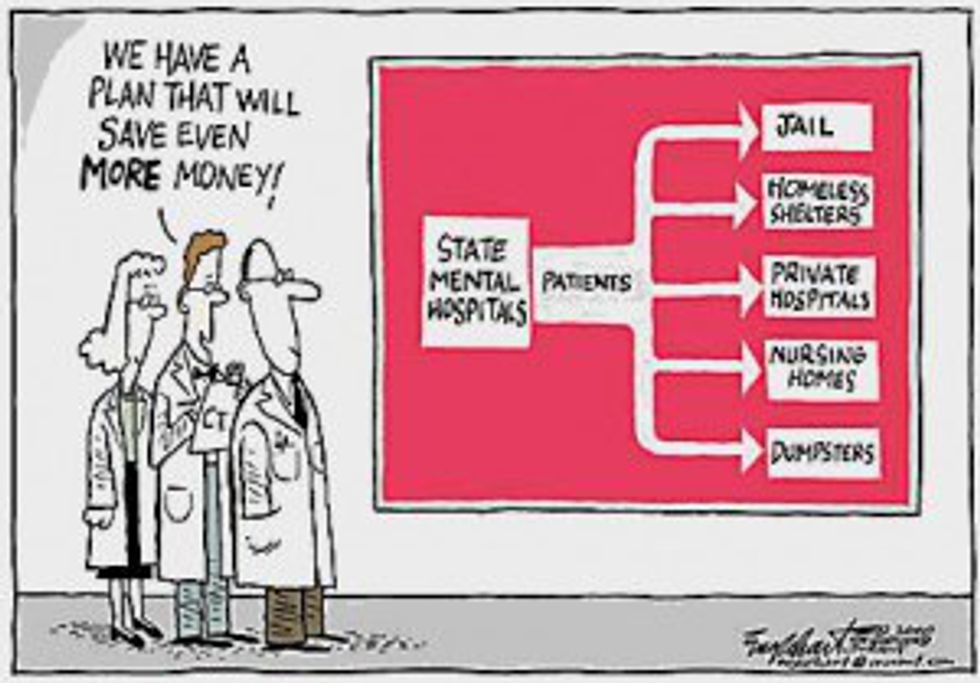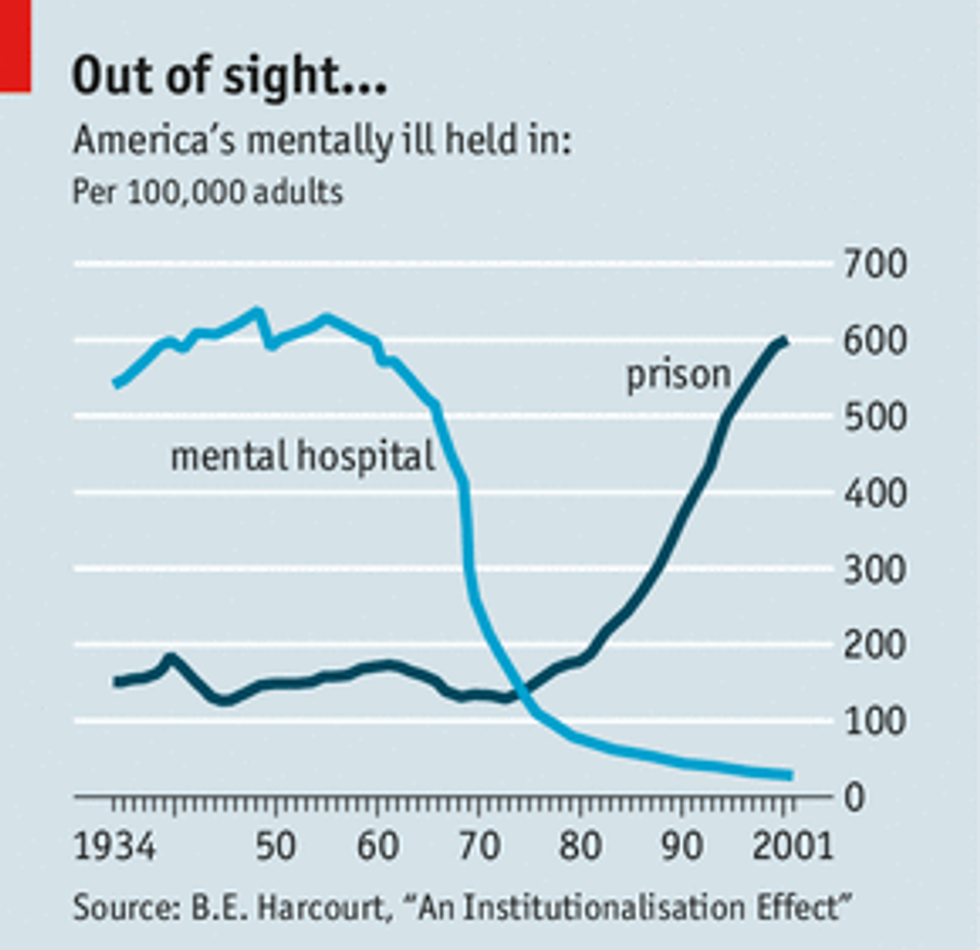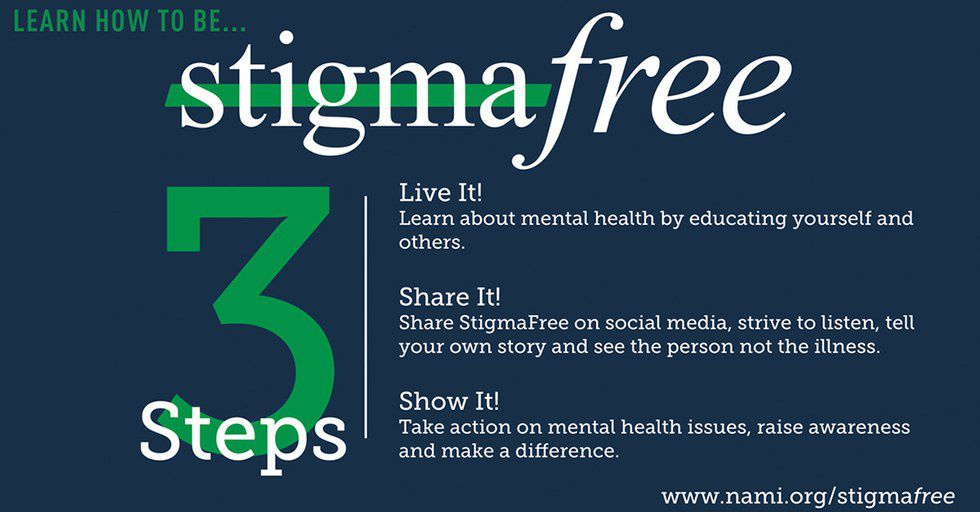In the Miami-Dade County Jail, the 9th floor is called the forgotten floor. It's said to be riddled with the smell of mold, and constant screams from the patients. This is the account of Justin Volpe, someone who ended up on this floor after his paranoia from his illness ended him up in jail. He says that being there, it didn't even feel as if he was in the United States anymore. He was eventually identified as having a mental illness and moved to a different facility, but he was just one of the lucky few. He discusses all this in his article for the Washington Post.
Mental illness isn't a topic that people are usually comfortable talking about, and this reluctance to talk about it has translated into a lack of adequate and effective care. There needs to be a reform of the mental health care system entirely, starting with the place where most of them are currently being treated; prison.
The mental health care system has never been at the levels it needs to be, but the issue with prisons has only been getting worse over the past 50 years. According to the Substance Abuse and Mental Health Administration, in 2013 the number of adults with a serious mental illness was approximately 10 million, which is more than the entire population of Switzerland.
In 1963, John F. Kennedy signed the Community Mental Health Act which facilitated the closing of large state facilities intending for the patients to be placed in smaller community facilities. Despite its attempts to remedy the issue, Sally Satel says in her New York Times article that the asylum reform had many unexpected consequences. For example, the fact that the small centers could not handle the overwhelming influx of patients or the lack of enough medical professionals up to the task.
To compensate for the lack of facilities, states started to come up with different places to house their mentally ill. In 2015, The Huffington Post reported a case of what is called greyhound therapy, where someone is offered minimal treatment and then placed on a greyhound bus with a one way ticket. This was the story of a man who was placed on a greyhound bus in Las Vegas with a one way ticket to Sacramento instructed to call 911 when he gets there. They report that it's possible he was one of 1500 patients shipped off to places where they had no connections and little support.
However, the most common solution to this problem has been to place the mentally ill in prison. According to the Treatment Advocacy Center, in 2012 there were approximately 10 times as many mentally ill in prison than there were in state psychiatric facilities. This means that prison is our nation's largest provider of mental health care. This is a problem because the prisons are not equipped to handle the increasing number of mentally ill nor are they able to provide adequate treatment.
The Department of Justice has found that in State prisons, only 33.8% of the inmates with a mental health condition actually received treatment after admission. They also say that only 24% did in federal prisons and 17.5% in local jails.
Treatment isn’t the only issue with the system, as the ever growing number of inmate is going to end up costing more of the taxpayers. The Vera Institute of Justice found that the average total cost per taxpayer per inmate was $31,286. If the mentally ill aren't diverted out of prison and into treatment then that number will continue to rise.
One of the best ways to make sure the number of mentally ill in prison decreases is to make sure they never make it there in the first place.
Various police forces around the country are offering what is called Crisis Intervention Training, or CIT. The best way to tackle the issue efficiently and remain cost effective is to make this training mandatory nationwide.
First of all, CIT is a process described by the National Alliance on Mental Illness as a program that brings together law enforcement, mental health providers, hospital emergency departments, and individuals with mental illness to help improve responses to people in a crisis.
This training could be the key to help remedy the mental health issue if police officers are trained beforehand to know how someone with a mental illness might behave, or see that in their motive for whatever crime they committed, then they can ensure that in sentencing it is taken into account. They can be diverted out of jails and into actual treatment facilities.
The National Alliance on Mental Illness says that currently only 15% of law enforcement jurisdictions have adopted the program. Of these jurisdictions, they say that using this program has both saved money and increased officer safety.
With this issue being specific to mental illness and their treatments, you might be wondering how solving it will affect you.
First of all, if we continue to do what we have been doing, which is nothing, then the issue will only get worse. The Treatment Advocacy Center states that due to a lack of treatment once incarcerated, they become repeat offenders and end back up in prison. With them cycling back into prison, it will only increase the amount taxpayers will have to pay to maintain a prison system that’s not actually treating or rehabilitating, only housing.
Now let's say that CIT does become a mandatory part of police training and is implemented nationwide. The National Alliance on Mental Illness has said that after the adoption of the program in Memphis, Tennessee the number of officer injuries received during calls with "mental disturbances" was down 80%.
The implementation of this program will also be seen in everyday life. With more people receiving adequate treatment, the stigma associated with the criminalization of mentally ill will decrease. Stigma translates to all social situations and can be a cause of people rejecting treatment as they’re in denial of having an illness.
Every change has to begin with someone fighting for it to happen and getting others to join their cause. It's clear that the system has only been deteriorating since the last time reform was attempted, and as a result the housing of the mentally ill in prisons isn't helping anybody.
While the implementation of this mandatory CIT will take time, there are plenty of things that we can all do to help speed things along.
There are steps you can take to help get CIT implemented locally. First you need build partnerships with the community and you can do so with the help of your local National Alliance on Mental Illness office. By contacting them and letting them know of you're interest in CIT training, it will help motivate change.
If you're not feeling motivated to take it this far, there is something even easier you can do to help make a change. The National Alliance on Mental Illness gives you an opportunity to take the pledge to be stigma free. By taking the pledge you're agreeing to learn the truth about mental illness, to see the person and not the illness, and to take action. Whether that action is contacting a congressman or just helping out a friend, by becoming stigma free you're helping others see that being mentally ill doesn't mean being crazy.
Anyone is susceptible to mental illness–it's biological. Maybe you know someone in your family who has one, or maybe even your kids might. Yes, mental illness is a touchy issue and people only really talk about it after there's violence. So stop waiting for the violence, stop letting the issue die, and do what was promised 50 years ago.



























